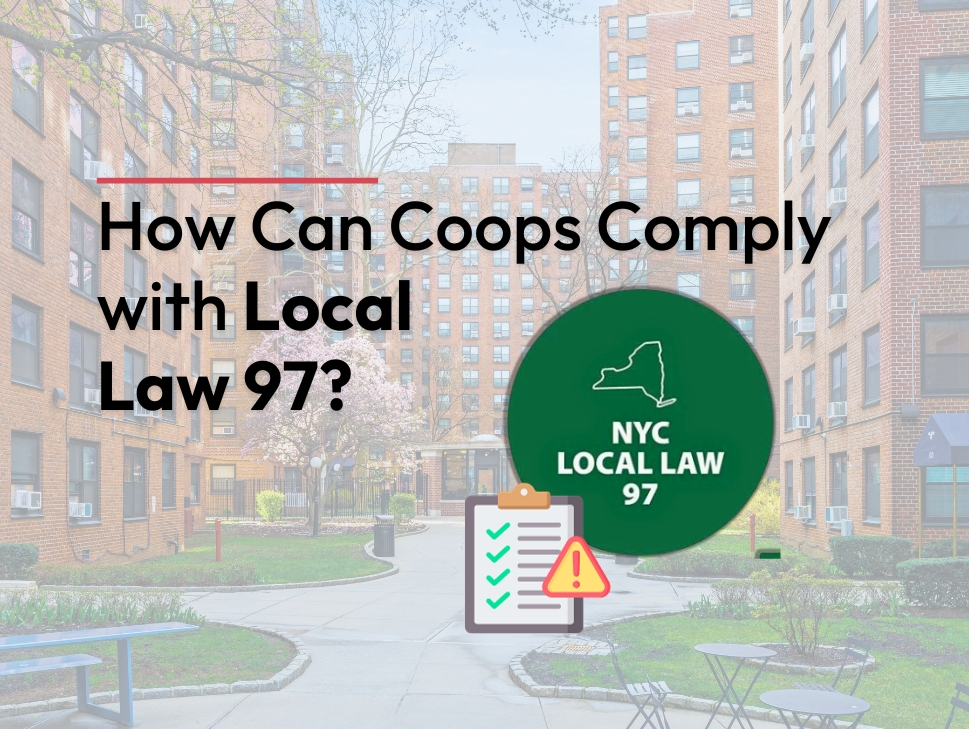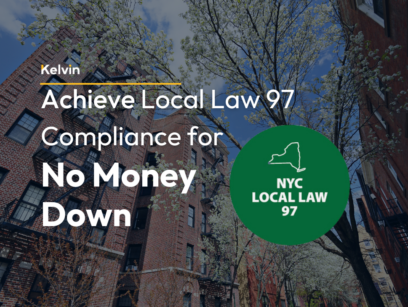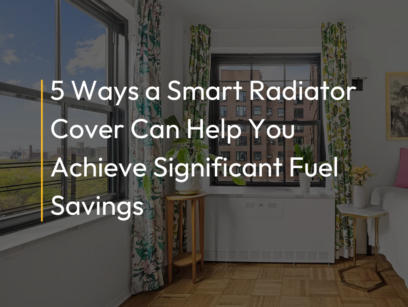
Complying with Local Law 97 can be a significant challenge for older NYC coops, as it requires a substantial reduction in carbon emissions from buildings. The good news: while challenging, it can be done! The law aims to combat climate change by setting emissions caps on large buildings and imposing penalties for non-compliance. To ensure compliance, coops should follow a comprehensive pathway that involves energy efficiency upgrades, hybrid electrification, and careful monitoring of emissions. Here is an outline of the best pathway for NYC coops to comply with Local Law 97.
Assess Current Emissions
Coops should begin by assessing their current carbon emissions to determine their baseline and understand how much reduction is required to comply with the law. This assessment will involve collecting energy consumption data, identifying high-emitting areas, and analyzing building systems. For example, Kelvin can provide this assessment for free.
Implement Energy Efficiency Measures and Building Controls
Energy efficiency upgrades are a crucial aspect of compliance with Local Law 97. Coops should prioritize improvements such as upgrading lighting systems to LED, thermostatic radiator enclosures, improving insulation, sealing air leaks, and optimizing window or sleeve air conditioners and boiler integration. These measures can significantly reduce energy consumption and emissions. Coops should invest in advanced controls that enable efficient scheduling, real-time monitoring, and remote management of building operations. These systems can enhance energy efficiency and help meet emissions targets.
Hybrid Electrification
Transitioning from fossil fuel-based systems to electric alternatives significantly reduces carbon emissions. Coops should explore options like non-cold climate window or sleeve heat pumps, electric water heaters, and electric vehicle charging infrastructure. Hybrid electrification aligns with New York City’s decarbonization goals and contributes to compliance with Local Law 97.
Monitor and Report Emissions
Coops must establish systems to monitor and report their emissions regularly. This involves collecting and analyzing energy usage data, tracking the effectiveness of implemented measures, and ensuring compliance with reporting requirements specified by the law. Monitoring systems can help coops identify areas for further improvement and demonstrate compliance to regulatory authorities.
Plan for Long-Term Sustainability
Compliance with Local Law 97 is not a one-time effort but a long-term commitment. Coops should develop sustainability plans that outline ongoing energy management practices, maintenance schedules, and continuous improvement strategies. By embedding sustainability into their operations, coops can not only comply with the law but also contribute to a greener and more resilient future for NYC.
Here’s how Kelvin can help coops in their compliance journey:
-
Enhanced Energy Efficiency:
Kelvin Systems provides thermostatic radiator enclosures, a prescribed technology in Local Law 97 that optimizes the heating distribution within buildings. By installing smart radiator covers, coops can improve the control and efficiency of their heating systems. The covers incorporate sensors and a cloud-based platform that dynamically adjusts heat output based on room occupancy and temperature requirements. This results in more comfortable shareholders and improved energy efficiency, helping coops meet their emissions reduction targets.
-
Tailored Heating Control
: Kelvin Systems allows coops to achieve room-by-room temperature control. Instead of heating the entire building uniformly, smart radiator covers enable individual temperature adjustments for each unit or space. This precision heating control optimizes energy usage, prevents overheating, and provides occupants with personalized comfort levels. By avoiding excessive heating, coops can reduce energy consumption and lower their carbon emissions.
-
Seamless Integration
Kelvin can be easily integrated into any existing heating infrastructure without the need for major renovations or disruptions. The retrofit installation process is straightforward, involving the placement of the smart radiator covers over existing radiators. This simplicity makes it a cost-effective solution for coops, enabling them to achieve compliance with Local Law 97 without significant capital investments or extensive construction work.
-
Real-Time Monitoring and Reporting
The cloud-based platform provided by Kelvin Systems offers real-time monitoring and reporting capabilities. Coops can access detailed insights into heating patterns, energy consumption, and temperature profiles for each unit or space. This information enables coops to identify inefficiencies, track energy performance, and make data-driven decisions to further optimize heating systems and reduce emissions.
-
Hybrid Electrification and Continuous Optimization
Kelvin deploys hybrid electrification to further reduce carbon emissions. By pairing smart radiator covers with heat pumps, Kelvin electrifies 80% of the heat and cooling load for 10% of the cost compared to full electrification. Kelvin also employs machine learning algorithms to continuously optimize heating schedules and performance based on occupancy patterns and weather conditions. Over time, the system learns and adapts to the specific needs and behaviors of the building, further improving energy efficiency and reducing carbon emissions. This ongoing optimization ensures that coops remain compliant with the law’s requirements while maximizing energy savings.
By incorporating Kelvin Systems’ intelligent heating management solution, coops can achieve significant energy savings, improve occupant comfort, and streamline compliance with Local Law 97. Kelvin’s ability to provide tailored control, real-time monitoring, and continuous optimization aligns with the law’s objectives and supports coops in their efforts to reduce carbon emissions and create sustainable, energy-efficient buildings.
In summary, compliance with Local Law 97 requires a holistic approach that encompasses energy efficiency upgrades, emissions monitoring, and ongoing sustainability practices. Coops should take a proactive stance, engage with experts, leverage available incentives, and continuously assess and improve their energy performance to meet the emissions reduction targets set by the law. By following this pathway, NYC coops can successfully comply with Local Law 97 while contributing to the city’s sustainability goals. Kelvin can help you start this journey by performing a free Energy Savings Analysis to access your coop’s current emissions and compliance with Local Law 97.

